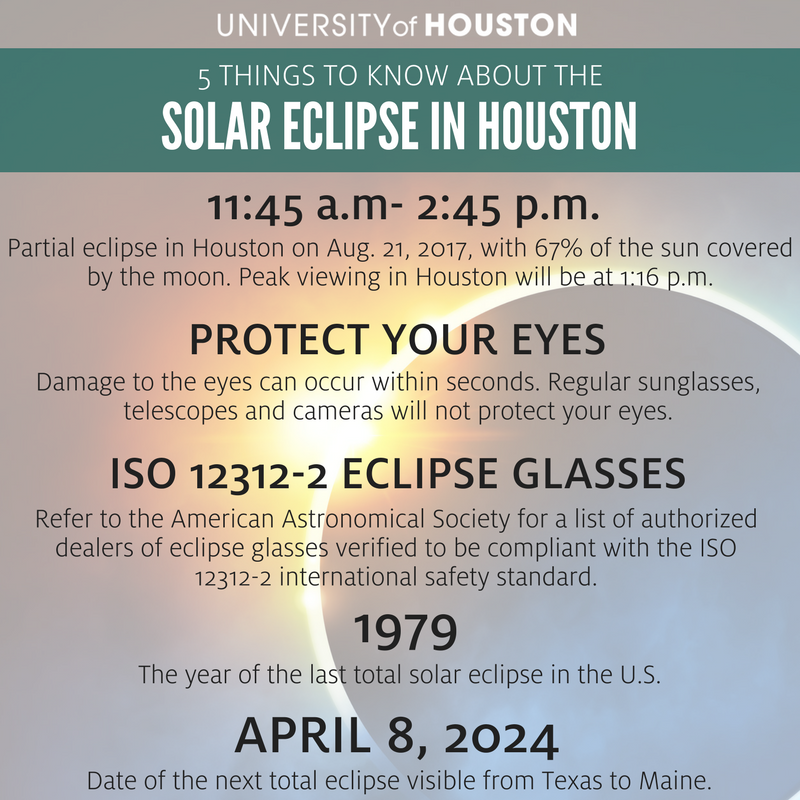
A rare total solar eclipse will occur from coast to coast on Monday, August 21. A total solar eclipse happens when the moon positions itself between the sun and the earth and completely covers the view of the sun. Here are a few things the campus community should know about the solar eclipse.
People in the greater Houston area will be able to see a partial eclipse with about 67 percent of the sun’s surface covered. The eclipse will begin at approximately 11:45 a.m. and last until approximately 2:45 p.m., with peak viewing at approximately 1:16 p.m. (all times CST).
Damage to the eye can happen in a matter of seconds when looking directly at the sun during an eclipse. An eclipse is only safe to look at during the period of totality, so experts at the UH College of Optometry recommend eye protection throughout the eclipse. “Eclipse glasses” or hand-held solar viewers must be compliant with the ISO 12312-2 international safety standard. Visit the American Astronomical Society’s website for tips on keeping your eyes safe. Regular sunglasses, telescopes and cameras will not protect your eyes.
During the duration of the eclipse, the Astronomy Society of UH, a student organization, and the Department of Physics will open the UH Observatory located on top of the Science and Research 1 building. Spectators can take a tour of the newly renovated observatory and see the eclipse through the big telescope. This is open to the campus community.
Outside the observatory, there will be additional telescopes with solar filters, pinhole projection assemblies for viewing the sun and a safety goggle station with protective eyewear available for use. That will take place in the grassy area between the Science and Research 1 building and Science and Engineering Classroom Building.
Parking Information: Potential visitors should note that this is the first day of classes at UH, with heavy traffic throughout the day. Although the viewing is free, visitor parking, located in the Stadium Garage on Holman St, charges an hourly fee. People might consider other potential viewing opportunities such as:
- The Houston Astronomical Society
- Houston Museum of Natural Science
- Houston Museum of Natural Science at Sugar Land
- Lunar and Planetary Institute
This is the first solar eclipse in the United States since 1979. To take advantage of this opportunity to advance learning and science, a group of students from the College of Natural Sciences and Mathematics and Cullen College of Engineering will be in Nebraska conducting experiments, such as detecting interference in radio communication due to absence of daylight. Faculty, staff and students from the Valenti School of Communication will be traveling with the research team to document their activities. In addition, they will participate in the Google/Berkley Eclipse Megamovie 2017 project to capture eclipse video and data.